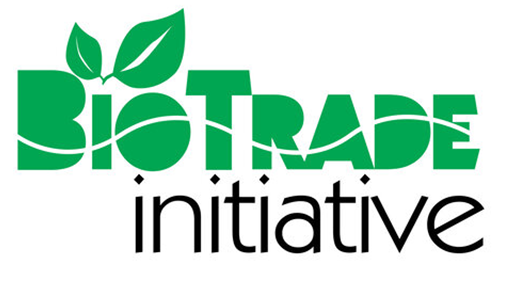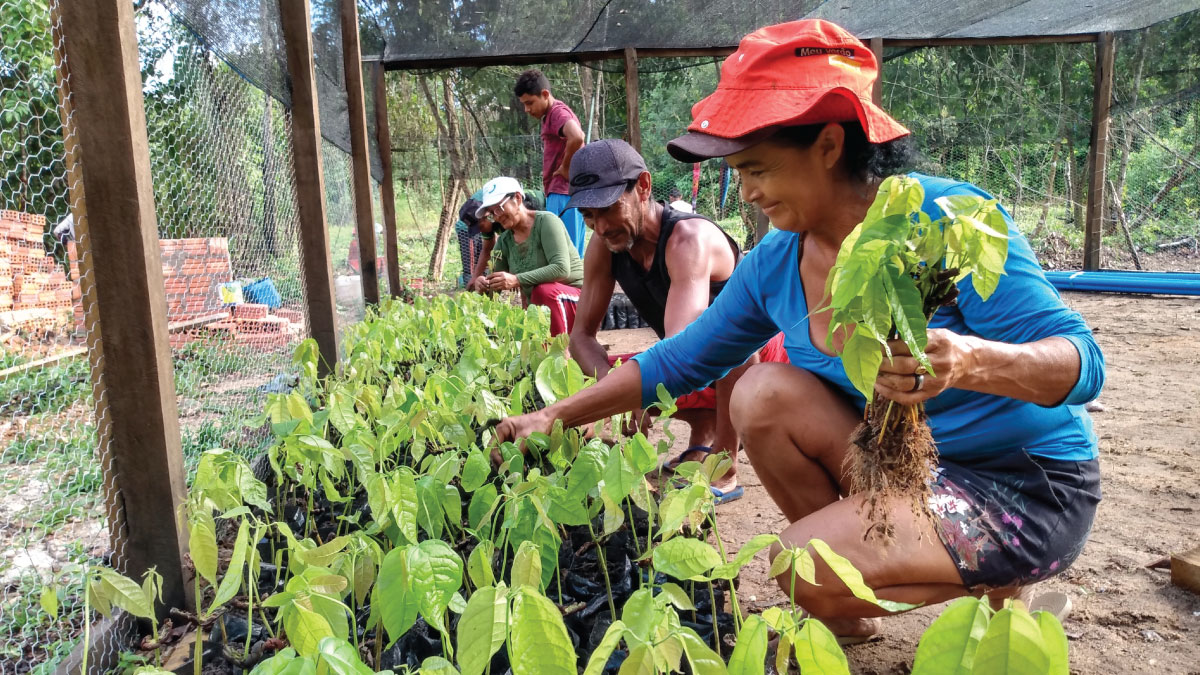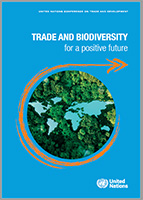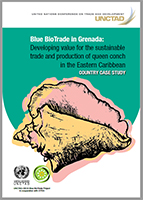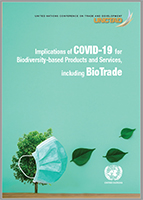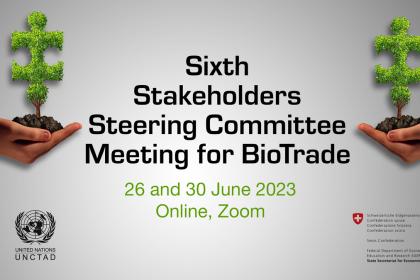Biodiversity is the natural capital base for a sustainable economy. The conservation of biodiversity and the sustainable use and trade of biodiversity-derived products and services can provide countries valuable opportunities for economic development and improvement of livelihoods.
To capture this opportunity, in 1996 UNCTAD launched the BioTrade Initiative to support the objectives of the Convention on Biological Diversity. Since then, the Initiative has developed a unique portfolio of global, regional and country programmes as well as a network of partners and practitioners working in over 80 countries.
BioTrade is when a product or service sourced from biodiversity is commercialized and traded in a way that respects people and nature.
The BioTrade Principles and Criteria (P&C), developed by UNCTAD, is a set of guidelines for businesses, governments and civil society wishing to support the conservation and sustainable use of biodiversity, as well as the fair and equitable sharing of benefits through trade. Today they are implemented and fostered by government organizations, business associations, NGOs, and companies in nearly 100 countries.
BioTrade Principles and Criteria
The BioTrade principles and criteria for terrestrial, marine and other aquatic biodiversity-based products and services include seven principles:
- Conservation of biodiversity
- Sustainable use of biodiversity
- Fair and equitable sharing of benefits
- Socioeconomic sustainability
- Legal compliance
- Respect for actors' rights
- Right to use and access natural resources
To implement the BioTrade Principles and Criteria, UNCTAD adopted four different approaches, which are:
- The “value chain approach”, which involves actors from all parts of the value chain working together to achieve agreed goals.
- The “adaptive management approach”, which allows for corrective measures to be adopted on the basis of ongoing monitoring of impacts.
- The “ecosystem approach”, which takes a holistic approach to ecological and social issues and the interactions and processes that make up production systems.
- The "sustainable livelihoods approach", which contributes to sustaining livelihoods, in particular of the poor and vulnerable populations.
Business and Biodiversity
Featured podcast
Ecosystems in peril: Why our future depends on protecting biodiversity
Trade and Biodiversity statistical tool
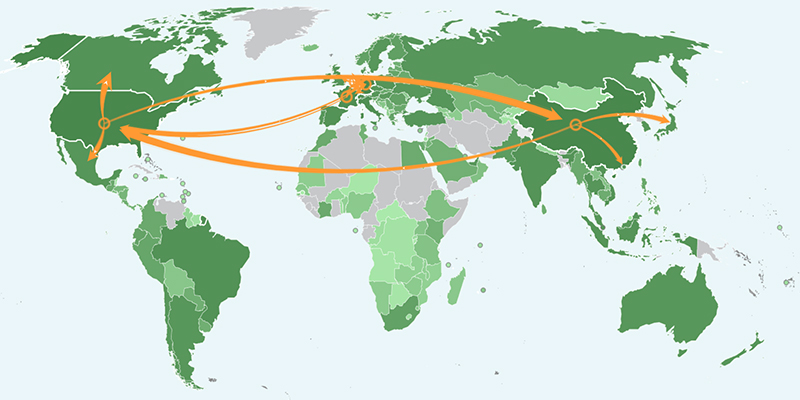
The trade and biodiversity statistical tool is comprised of a database of trade statistics on biodiversity-based products and interactive maps and charts to help the user visualize the underlying data more intuitively.
Post-2020 global biodiversity framework
2020 was hailed as a big year for biodiversity, as under the Convention on Biological Diversity (CBD), a new Global Biodiversity Framework (GBF) was to be negotiated.
This framework will define targets and pathways for the conservation and management of biodiversity for the next decade and beyond.
Due to COVID-19 pandemic, this process was delayed, and the global biodiversity framework is expected to be adopted in 2022 at the 15th meeting of the Conference of the Parties (COP 15) in Kunming, China.
BioTrade’s Involvement
As the United Nations agency focusing on trade and development, UNCTAD is steering, engaging, and consulting with BioTrade partners and key stakeholders to contribute to the global biodiversity framework.
Focus has been on promoting the trade of sustainably produced and sourced good and services under environmental, social, and economic sustainability criteria.
Moreover, UNCTAD’s role in promoting trade in biodiversity products and services have been reaffirmed for over a decade by its 195 Member States, including in 2021 with the Bridgetown Covenant.
